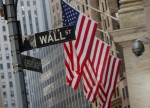
- All Instrument Types
- Indices
- Equities
- ETFs
- Funds
- Commodities
- Currencies
- Crypto
- Bonds
- Certificates
Please try another search

How To Answer "What Should I Trade"?
“It’s not how much money you make, but how much money you keep, how hard it works for you, and how many generations you keep it for”
-Robert Kiyosaki
What is an Asset?
Simply put, an asset is anything you own that adds to your financial value – as opposed to a liability, which represents money you owe.
What are the Different Asset Classes?
The four major financial assets that are commonly found in investors’ portfolios include the following:
1.Stocks
In general, a "stock" is used to describe a company that is publicly traded on an exchange. For example, if you think the time is right, you may buy or sell 100 shares of Apple stock. Stock markets are one of the most vital components of a market economy, since they give companies access to capital to grow its business. Investors, in return, own a slice of the company with the potential to realize gains based on how the company performs financially. This potential is ultimately reflected by the company’s changing share price.
Stocks, both domestic and international, can be characterized amongst higher risk investment assets, despite the fact that they offer the possibility of higher returns in the long term. However, the higher growth potential comes laden with greater risk. In general, stocks are classified into three broad categories – defensive, cyclical and growth stocks. The latter two accentuate the returns, while defensive stocks can provide cushioning during market downturns.
Pros
-
Stocks have potential for relatively higher returns over the long term
-
Some stocks pay dividends, which can provide extra income for investors
Cons
-
Stock prices can rise and fall dramatically
-
There is no guaranteed return
2.Foreign Exchange
Foreign currencies are traded in the interbank market, where banks and brokers negotiate directly with one another, without the presence of any central exchange or clearing house. The main trading centres include London, New York, Tokyo, Singapore and Hong Kong. The most popular currency market instruments are spot foreign exchange, foreign exchange futures, and currency ETFs. The foreign exchange market is the biggest and the most liquid financial market in the world. Average daily activity exceeds US$5.00 trillion (as of 2016), with over US$1.50 trillion conducted in spot transactions. The major foreign currency pairs are highly volatile, providing traders and investors with opportunities to realize returns from the fluctuations in the exchange rate.
Pros
-
The foreign exchange market is open 24 hours a day, 5 days a week
-
Trading foreign currencies involves relatively lower transaction costs
Cons
-
The leverage that accompanies currency trading acts like a double-edged sword whereby both profits and losses may be magnified
3.Commodities
Tradable commodities can be classified into three broad categories:
-
Metals – Gold, silver, and copper constitute the three most traded metals
-
Energy commodities – Crude oil is the world’s most traded commodity. Other notable energy commodities include natural gas, heating oil, and gasoline
-
Agricultural commodities – The major agricultural commodities include corn, wheat, soybeans, coffee, rice, cotton, cocoa and sugar
Taking trading volumes into account, the commodities market is the second biggest financial market in the world. As with most other financial securities traders and institutional investors are an integral part of the commodities market, along with companies that wish to either sell their production or protect against price fluctuations. Traders’ success in the market depends primarily on their ability to correctly analyze various current events that could impact future demand and supply levels.
Pros
-
Since commodities are mostly traded through futures contracts, margin trading may be available to investors
-
Commodity markets are less susceptible to price manipulation
-
Futures can be cash settled, meaning no need to accept physical delivery
Cons
-
Due to low margin requirements, commodities may encourage poor money management
-
In certain cases, investors have to accept the risk of having to take actual physical delivery of a commodity
4.Bonds
Bonds can be viewed like personal loans, similar to a mortgage – except in these cases, funds are usually borrowed by governments and corporations. Because these entities are “loaned” money, they pay regular interest on the borrowed amount before repaying the loan back at the end of the agreement. Bonds provide regular interest income and are less volatile than stocks, foreign currencies and commodities. Bonds may pay interest twice a year, quarterly, or monthly depending on the contract. They are integral to a diversified portfolio because of their inverse relationship with stocks: when stock prices go down, bond prices often rise, and vice-versa. This makes bonds an interesting strategy for protecting against declines in stock markets.
Pros
-
Bond prices fluctuate less
-
Bonds provide a degree of income stability
Cons
-
Historically, bonds have generated lower long-term returns when compared to stocks
-
Bond prices are sensitive to changes in interest rate
How to Pick the Appropriate Asset Class
FXTM’s Standard Account gives you access to over 50 foreign currency pairs, more than 180 stocks, and 5 different commodities. As a result, choosing what to trade or invest in can become a difficult task. Investors should choose assets where returns ideally tend to move in opposing directions. That way, even if one segment of the portfolio is diminishing in value, the rest of the asset index is more than likely to appreciate, or at least not decrease as much.
FXTM is an international online forex broker offering financial services in forex, CFDs on spot metals and CFDs on Commodity Futures, Indices and Shares.
The FXTM brand is authorized and regulated in various jurisdictions. ForexTime Limited (www.forextime.com/eu) is regulated by the Cyprus Securities and Exchange Commission with CIF license number 185/12, licensed by the Financial Sector Conduct Authority (FSCA) of South Africa, with FSP No. 46614. The company is also registered with the Financial Conduct Authority of the UK with number 600475. Exinity Limited (www.forextime.com) is regulated by the Financial Services Commission of the Republic of Mauritius with an Investment Dealer License bearing license number C113012295. Forextime UK Limited (www.forextime.com/uk) is authorised and regulated by the Financial Conduct Authority, firm reference number 777911.
CFDs are complex instruments and come with a high risk of losing money rapidly due to leverage. 90% of retail investor accounts lose money when trading CFDs with this provider. You should consider whether you understand how CFDs work and whether you can afford to take the high risk of losing your money.”
@2019 FXTM




